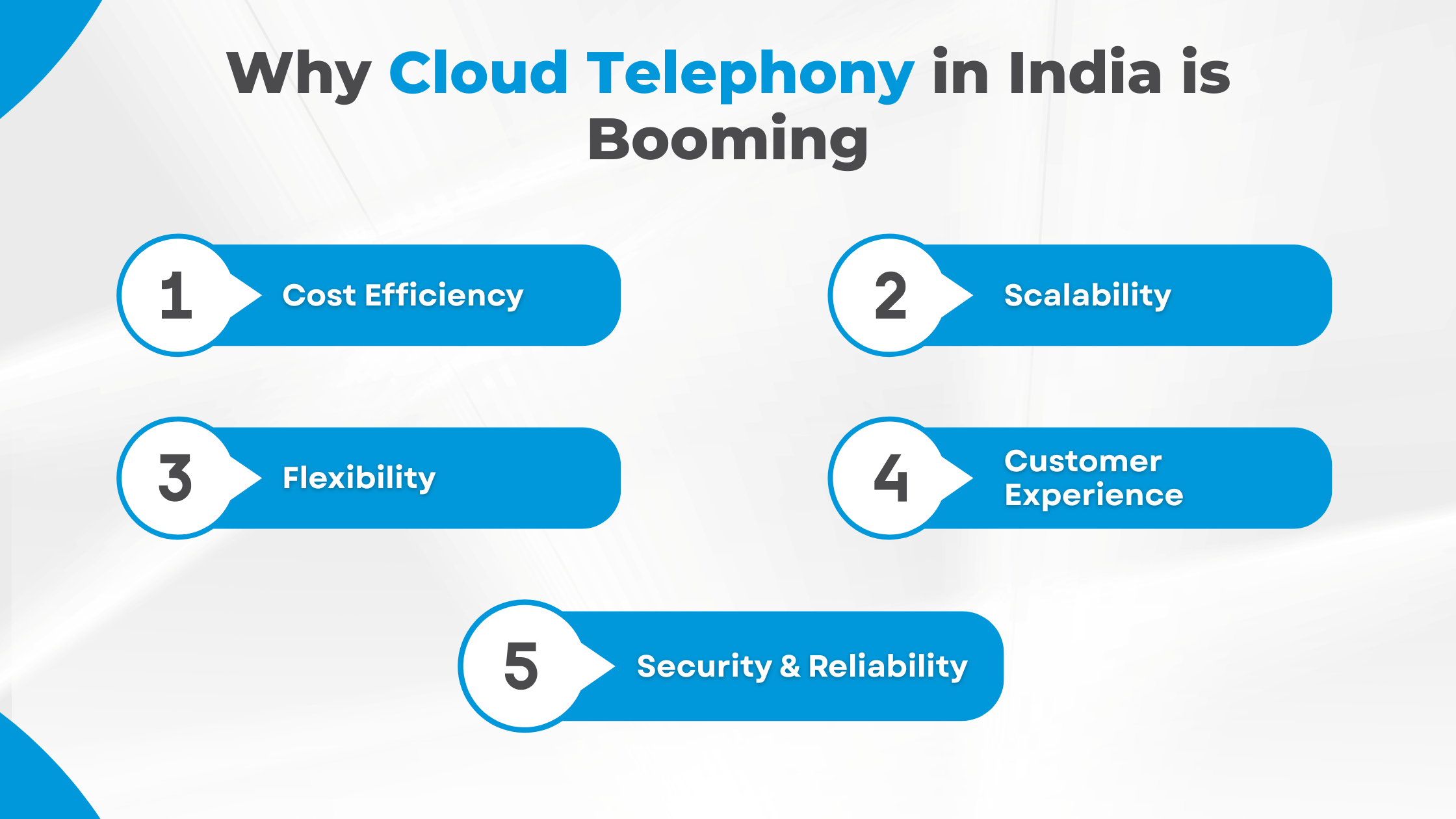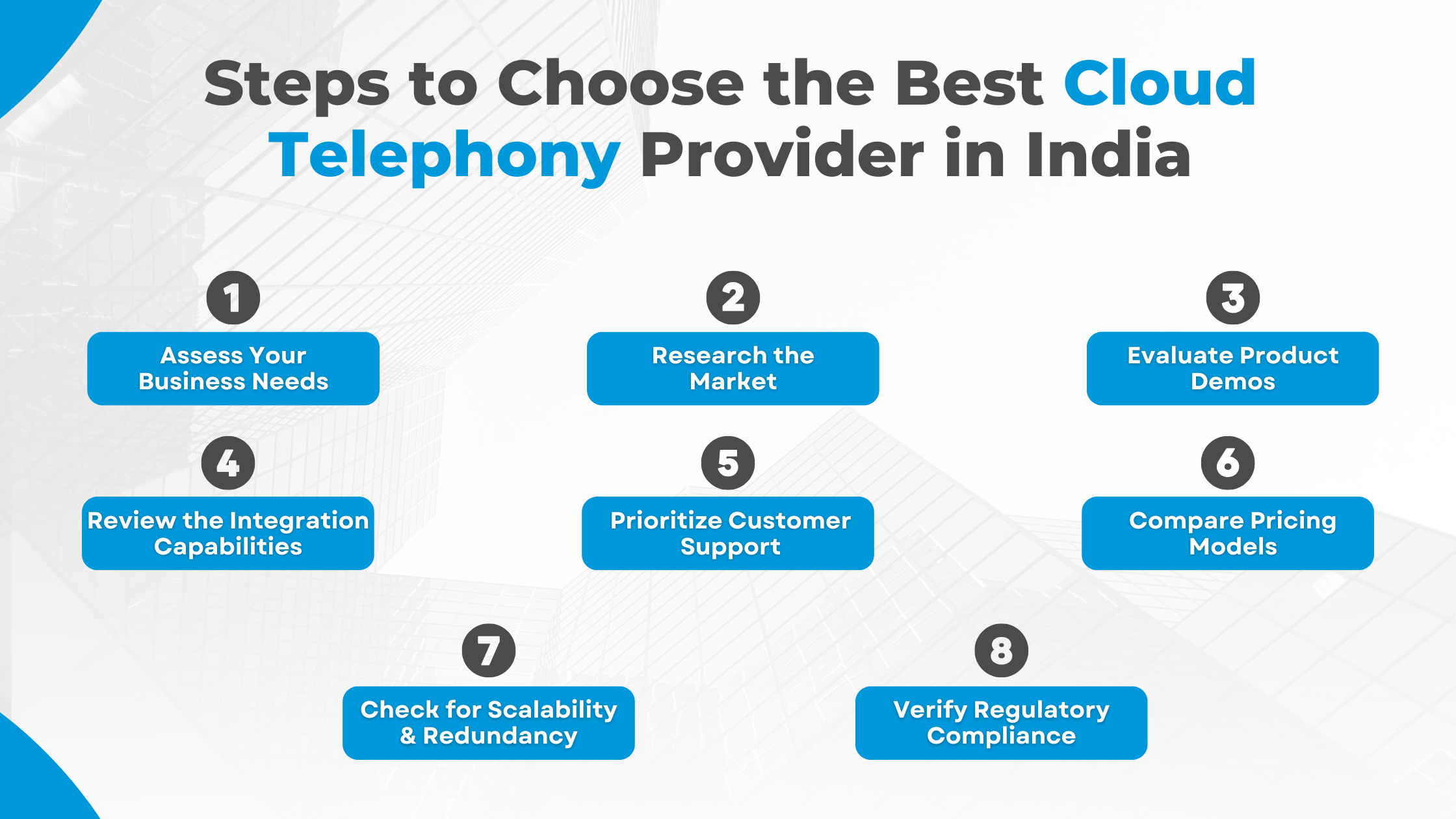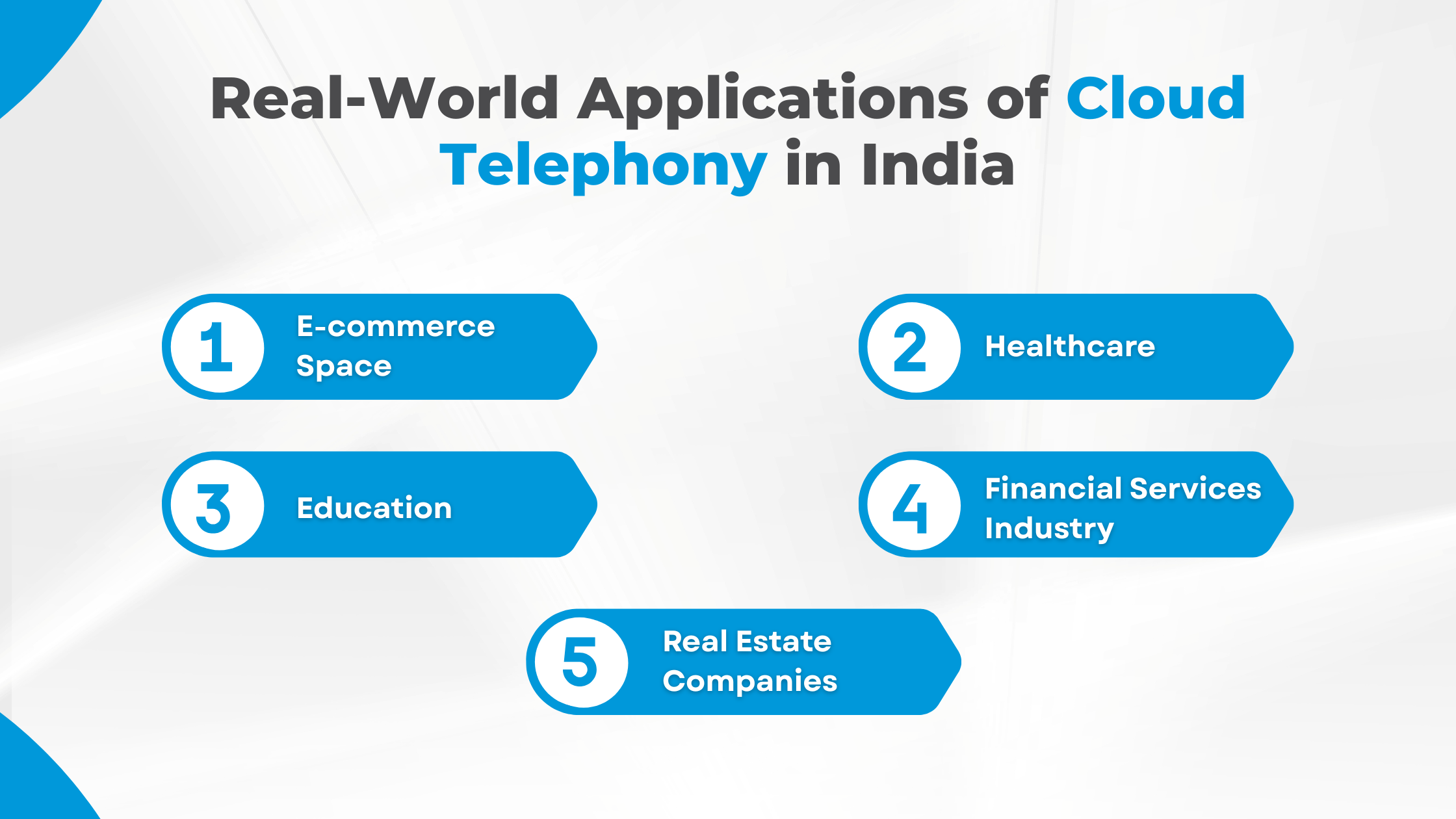In the fast-paced digital economy, communication is everything. From startups to multinational enterprises, every business needs a robust, flexible, and cost-effective way to stay connected with customers, vendors, and internal teams. That’s where cloud telephony comes in.
Cloud telephony in India has experienced significant growth over the past decade. As traditional phone systems become outdated and expensive to maintain, businesses are increasingly turning to cloud-based solutions. However, with numerous providers in the market, selecting the best cloud telephony provider in India, like Kommuno, can feel like a daunting task. The stakes are high; your choice could significantly impact your customer service quality, operational efficiency, and overall scalability.
This blog will walk you through everything you need to know before choosing a cloud telephony solution in India, including what features to look for, how to evaluate providers, and which questions to ask before making your decision.
Before we dive into provider selection, let’s briefly define what cloud telephony is:
Cloud telephony, also known as hosted telephony or cloud calling, is a communication technology that enables voice services through the internet. Unlike traditional PBX systems that require heavy hardware installations, cloud telephony operates via a virtual platform, allowing businesses to make and receive calls from anywhere using the internet.
It transforms business communication by offering functionalities such as virtual numbers, IVR (Interactive Voice Response), call forwarding, recording, analytics, and real-time monitoring, all without needing to invest in physical infrastructure.

India’s evolving digital landscape, government push for digitalization, and rise in remote/hybrid work cultures have led to a surge in demand for cloud telephony solutions in India. The benefits are compelling:
These advantages make cloud telephony at Kommuno an obvious choice for modern Indian businesses.
When evaluating different solutions, ensure the platform offers the following features:
Allows automated call routing based on caller input. This improves response time and reduces dependency on live agents.
With local, national, and toll-free virtual numbers, businesses can establish a presence in multiple locations without physical offices.
Essential for quality control, training, and compliance, especially in industries like finance or healthcare.
Access to live dashboards and detailed call logs helps managers monitor performance and optimize resource allocation.
Top-tier providers integrate with CRMs like Zoho, Salesforce, and HubSpot, making it easier for sales and support teams to manage customer interactions.
In the era of hybrid work, access from any device ensures uninterrupted communication.
The provider should follow robust data protection protocols and adhere to Indian telecom regulations.

Now that we know what features matter, let’s explore how to identify and choose the best provider, like Kommuno, for your specific business needs.
Start with an internal evaluation:
Understanding these needs will help you shortlist relevant solutions.
Although India has many cloud telephony players, not all offer the same quality or range of services. Look for companies like Kommuno that are well-established and have strong reviews from businesses similar to yours. Explore case studies, industry experience, and user feedback.
Once you’ve shortlisted a few vendors, request a live demo or trial period. Use this time to test the interface, call quality, IVR functionality, call tracking, and other features. A reliable cloud telephony solution in India will offer an intuitive design and strong customer support during the trial.
Does the platform integrate with your existing tools like CRM, helpdesk, ERP, or marketing software? Seamless integration reduces operational friction and boosts agent productivity. Confirm that your provider supports plug-and-play or open API capabilities.
Responsive and knowledgeable customer support is critical, especially when you depend on telephony for daily business operations. Choose a provider that offers:
Support responsiveness often separates the best cloud telephony providers in India from the rest.
Cloud telephony pricing varies based on features, number of users, call volume, and integrations. Some providers charge per user per month, while others offer pay-as-you-go or enterprise contracts. Look beyond base pricing; check for hidden costs like
Select a provider that offers transparent pricing and customizable plans.
Your provider should offer:
These technical features are crucial as your business grows.
In India, cloud telephony services are regulated by the Department of Telecommunications (DoT). Make sure your provider:
Using unauthorized services could lead to legal complications and service disruption.
Businesses often look for certain credentials when evaluating the best cloud telephony providers in India:
Certain providers prioritize small and medium-sized enterprises (SMEs), whereas others concentrate on catering to large corporations. Opt for Kommuno, which corresponds with your scale and growth path.
Before signing a contract or subscribing to a plan, ask the following:
These questions will help you make an informed and confident decision.

Cloud telephony is no longer a niche solution; it has become a critical communication tool across industries in India. From improving customer engagement to streamlining operations, businesses are leveraging the flexibility and efficiency of cloud-based calling systems to stay competitive in the digital age.
Cloud telephony enables missed call campaigns, automated order confirmations, IVR-based order tracking, and real-time delivery updates. Brands use these tools to ensure seamless post-purchase experiences while reducing dependency on manual intervention. For example, customers can press a key to track their order, request a callback, or cancel with minimal friction.
Healthcare providers benefit greatly from cloud-based systems by automating appointment reminders, setting up multilingual patient helplines, and facilitating emergency contact lines. Cloud telephony also ensures doctors and staff remain connected across clinics or hospitals without physical extensions.
Schools, colleges, and edtech startups use cloud telephony for admission helplines, student query management, automated notifications about classes or exams, and even voice-based feedback collection from parents and students.
Security and compliance are critical. Cloud telephony helps with secure customer verification calls (e.g., OTPs and KYC reminders), regulatory-compliant call recording, and automated loan or EMI reminders, reducing manual calling efforts and improving collection rates.
Use cloud systems to generate leads through missed calls, assign sales inquiries to agents based on location, and automate follow-up calls. This accelerates conversion cycles and ensures no lead is left unattended.
Even startups and small businesses with limited budgets can scale their customer support and sales outreach without investing in physical infrastructure. Overall, cloud telephony in India has revolutionized how organizations interact with customers and employees, offering a modern, scalable, and cost-efficient communication backbone for diverse use cases.
Choosing the right cloud telephony solution in India is a strategic decision, one that will shape how your teams collaborate and how your customers perceive your brand. With so many vendors competing in this space, it’s easy to get overwhelmed.
In a digitally driven world where first impressions are often made over a phone call, choosing one of the best cloud telephony providers in India like Kommuno isn’t just an IT decision: it’s a business necessity. If you’re still unsure where to start, begin with a needs assessment and map those against the offerings of these reputed vendors. Take demos, ask questions, and think long-term. The right cloud telephony partner can be the silent engine behind your business growth.
Elevate Your Business Game with Kommuno – The best way to stay connected to customers!
Copyright ©2024 All Rights Reserved | Kommuno Technologies Pvt Ltd
Copyright ©2024 All Rights Reserved | Kommuno Technologies Pvt Ltd